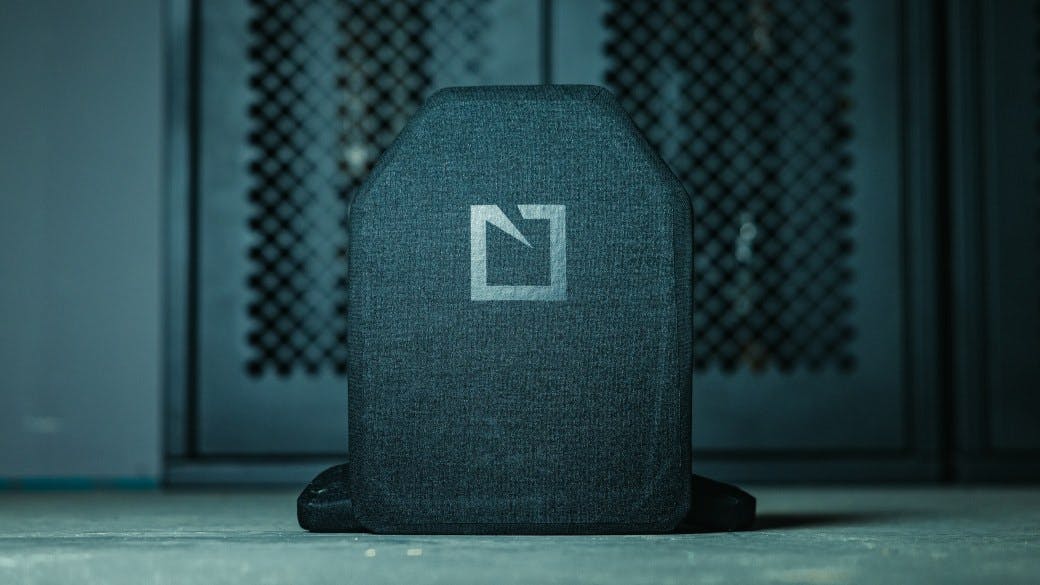
“What body armor should I buy?” Armor comes with trade-offs, as most things do. To answer this question, you will need to look at your situation and determine which trade-offs you are willing to deal with to best serve your purpose. The table below is meant to help you think through the trade-offs with greater ease.
Comparison Chart
| Model | Protection Level | Curve | Cut | Thickness | Weight per plate – Size | Price for Set* |
| HESCO T212 | Special Threat | Single Curve | Shooter Cut | 0.54 in | 4.7 lb – Large (10×12) | $395.00 |
| HESCO L211 | Special Threat | Single Curve | Shooter Cut | 0.69 in | 4.9 lb – Large (10×12) | $544.00 |
| HESCO M210 | Special Threat | Multi-Curve | SAPI Cut | 0.61 in | 5.0 lb – Medium | $656.00 (M) |
| HESCO 3612 | Level III+ | Multi-Curve | SAPI Cut | 0.75 in | 4.0 lb – Medium | $1,005.00 (M) |
| HESCO 3810 | Level III+ | Multi-Curve | SAPI Cut | 0.98 in | 4.0 lb – Medium | $1,180.00 (M) |
| HESCO 4601 | Level IV | Multi-Curve | SAPI Cut | 1.18 in | 6.6 lb – Medium | $1,106.00 (M) |
| HESCO 4800 | Level IV | Multi-Curve | SAPI Cut | 1.04 in | 5.1 lb – Medium | $2,744.00 (M) |
Special Threat Options
| HESCO T212 | HESCO L211 | HESCO M210 |
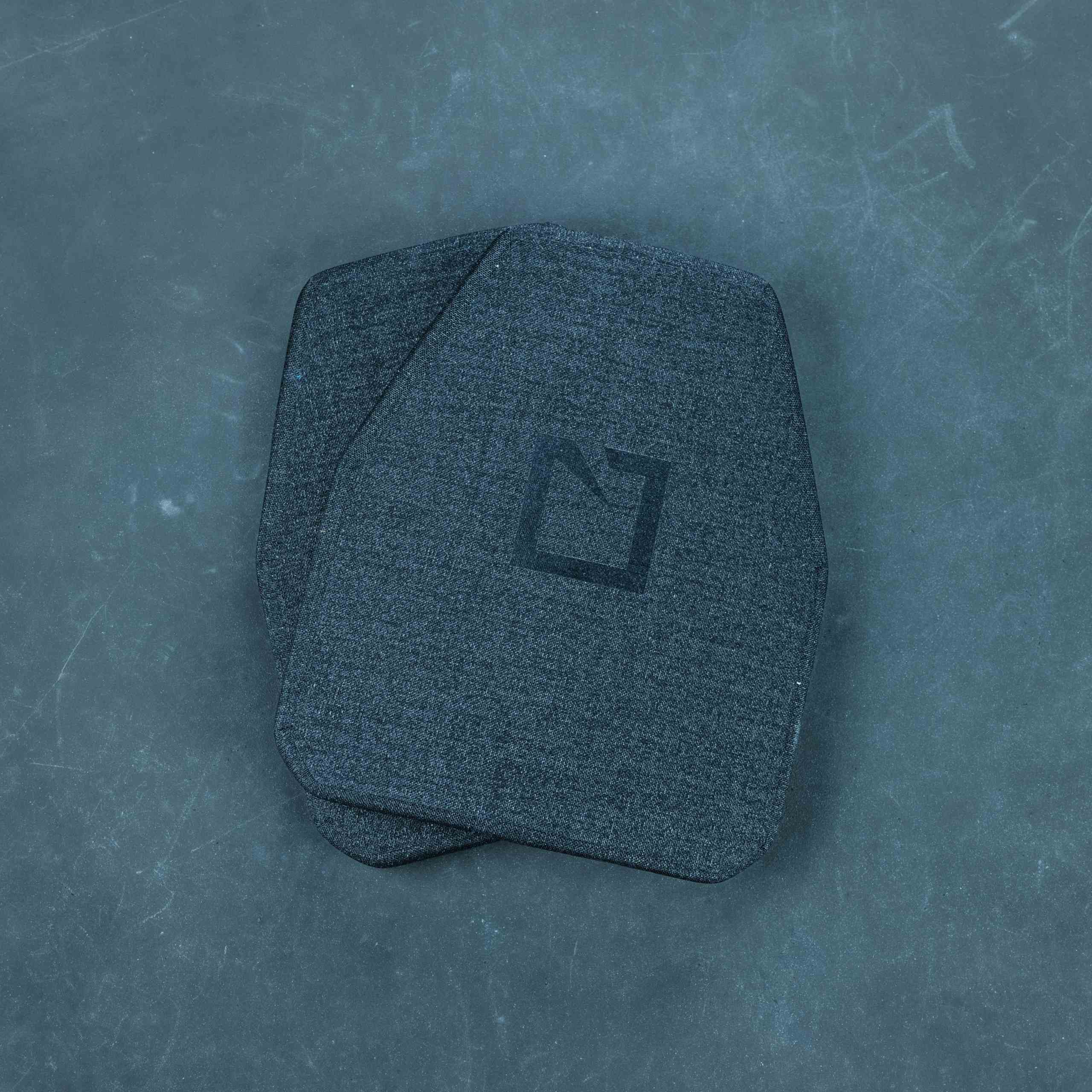 | 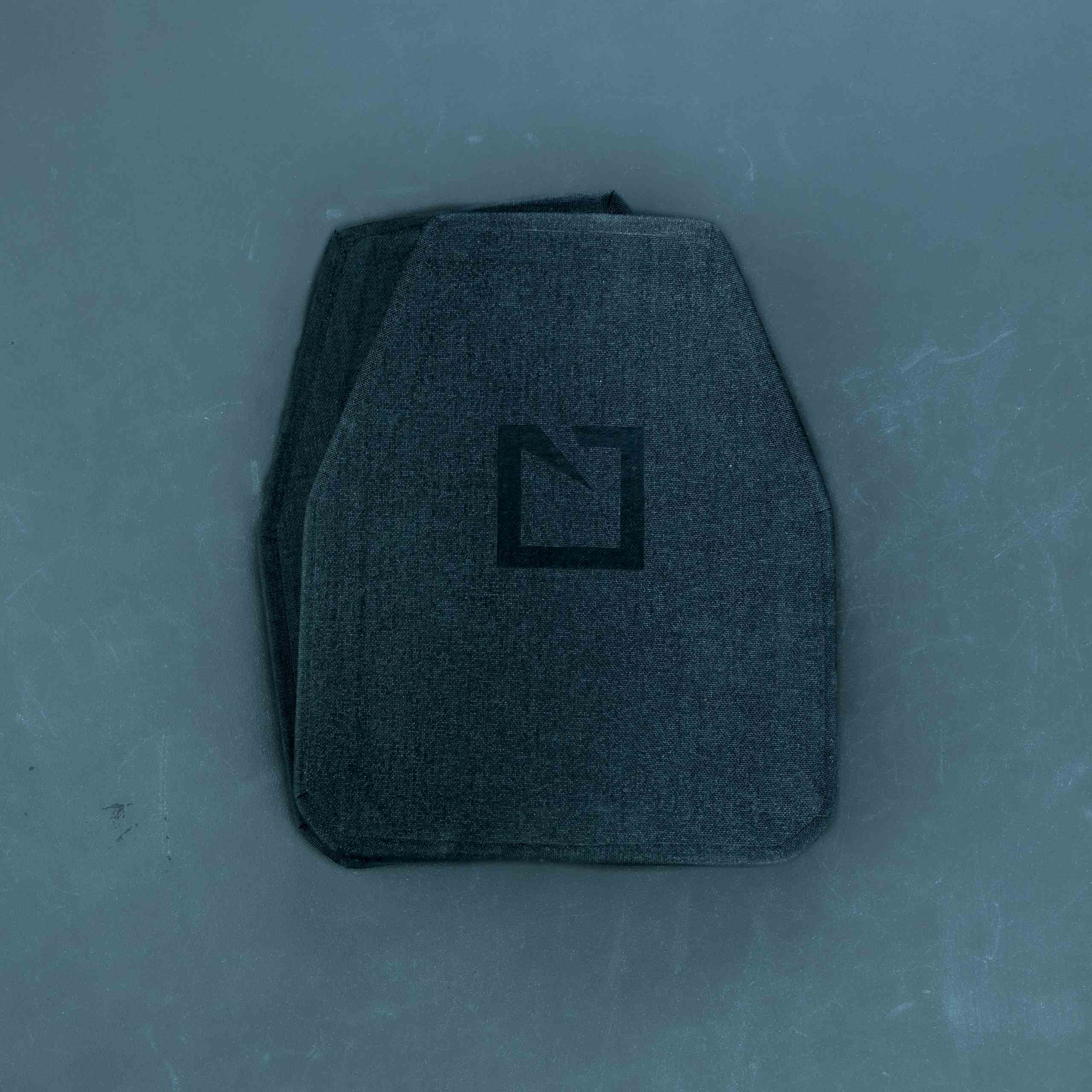 | 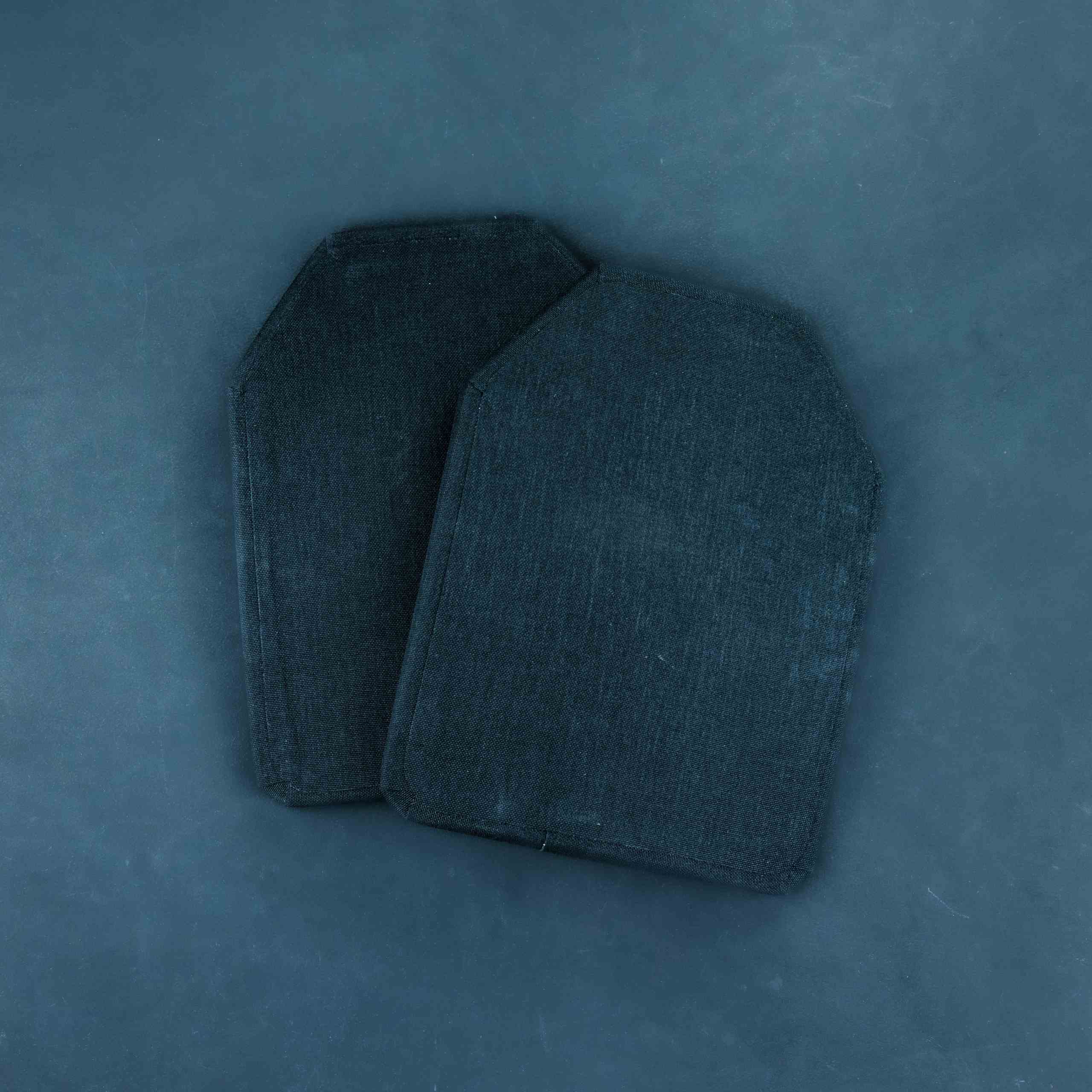 |
| $395.00* | $544.00* | $656.00* |
| 0.54″ Thick | 0.69″ Thick | 0.61″ Thick |
| Single Curve | Single Curve | Multi-Curve |
| Shooter Cut | Shooter Cut | SAPI |
| 4.7 lb/plate (10×12) | 4.9 lb/plate (10×12) | 5.0 lb/plate (M) |
| View Threat Matrix | View Threat Matrix | View Threat Matrix |
The T212 is a T.REX-exclusive plate designed to fill the gap left by the discontinued L210. It offers enhanced protection against intermediate threats while being lighter and thinner than its predecessor.
The L211 is the successor to the L210, offering enhanced protection against rounds like M855A1 and 7.62×39 API. It is lighter than the L210 by half a pound and slightly thicker at 0.69.
The M210 protects against very similar threats as the L211. It is thinner and slightly lighter than the L211, but the multi-curve design greatly increases the comfort and concealability over the L211.
Level III+ Options
| HESCO 3612 | HESCO 3810 |
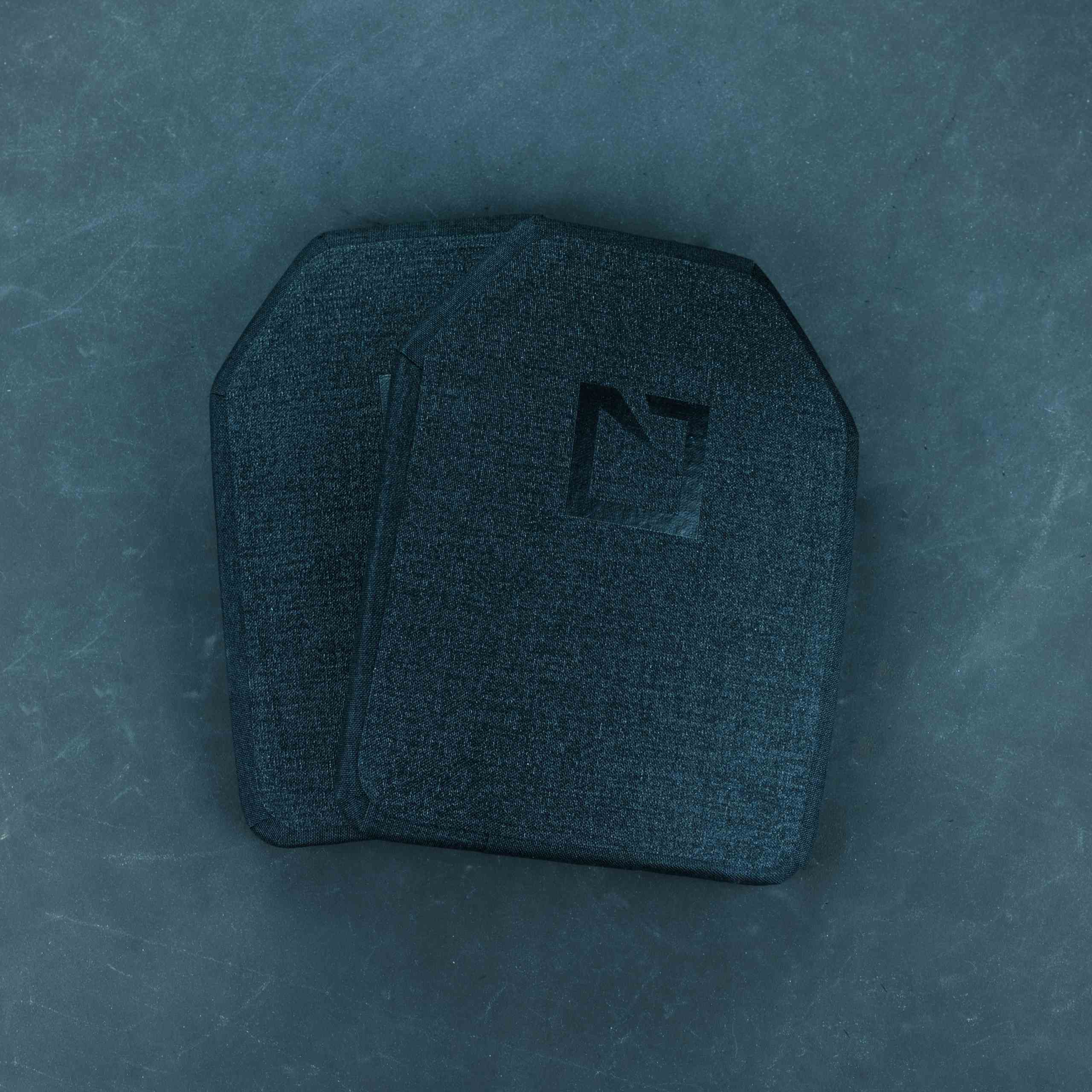 | 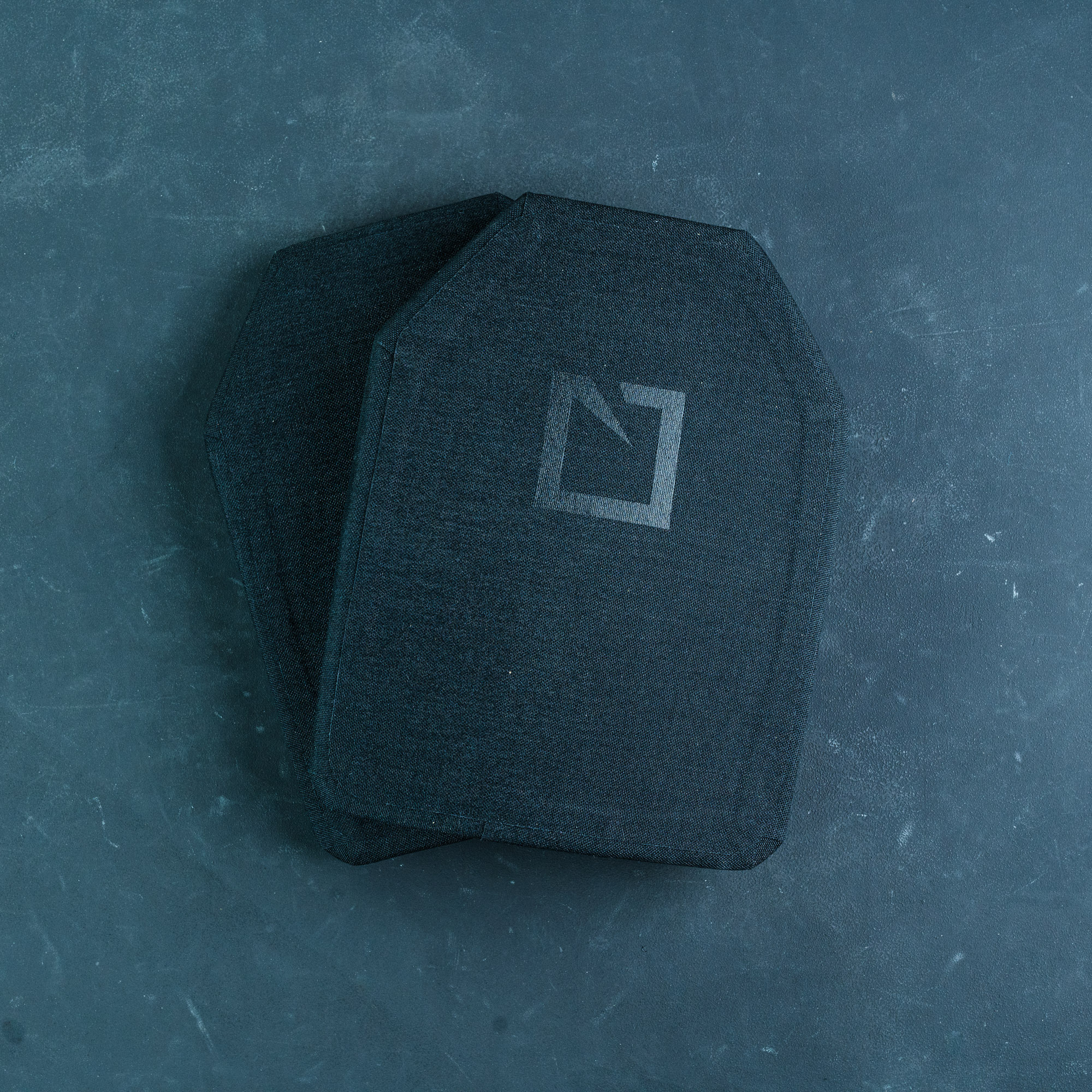 |
| $1,005.00 (M)* | $1,180.00 (M)* |
| 0.75″ Thick | 0.98″ Thick |
| Multi-Curve | Multi-Curve |
| SAPI Cut | SAPI Cut |
| 4.0lb/plate (M) | 4.0lb/plate (M) |
| View Threat Matrix | View Threat Matrix |
The 3612 offers similar Level III+ protection as the 3810 at the same weight with a slightly thinner profile. However, due to the thinner profile, it loses 2 extra threats that the 3810 picks up, which is reflected in the lower price.
The 3810 is a lightweight multi-curve plate that offers Level III+ protection. It costs more than the 3612 since it picks up two additional threats: 7.62×63 JSP and 7.62x54R LPS.
Level IV Options
| HESCO 4601 | HESCO 4800 |
 | 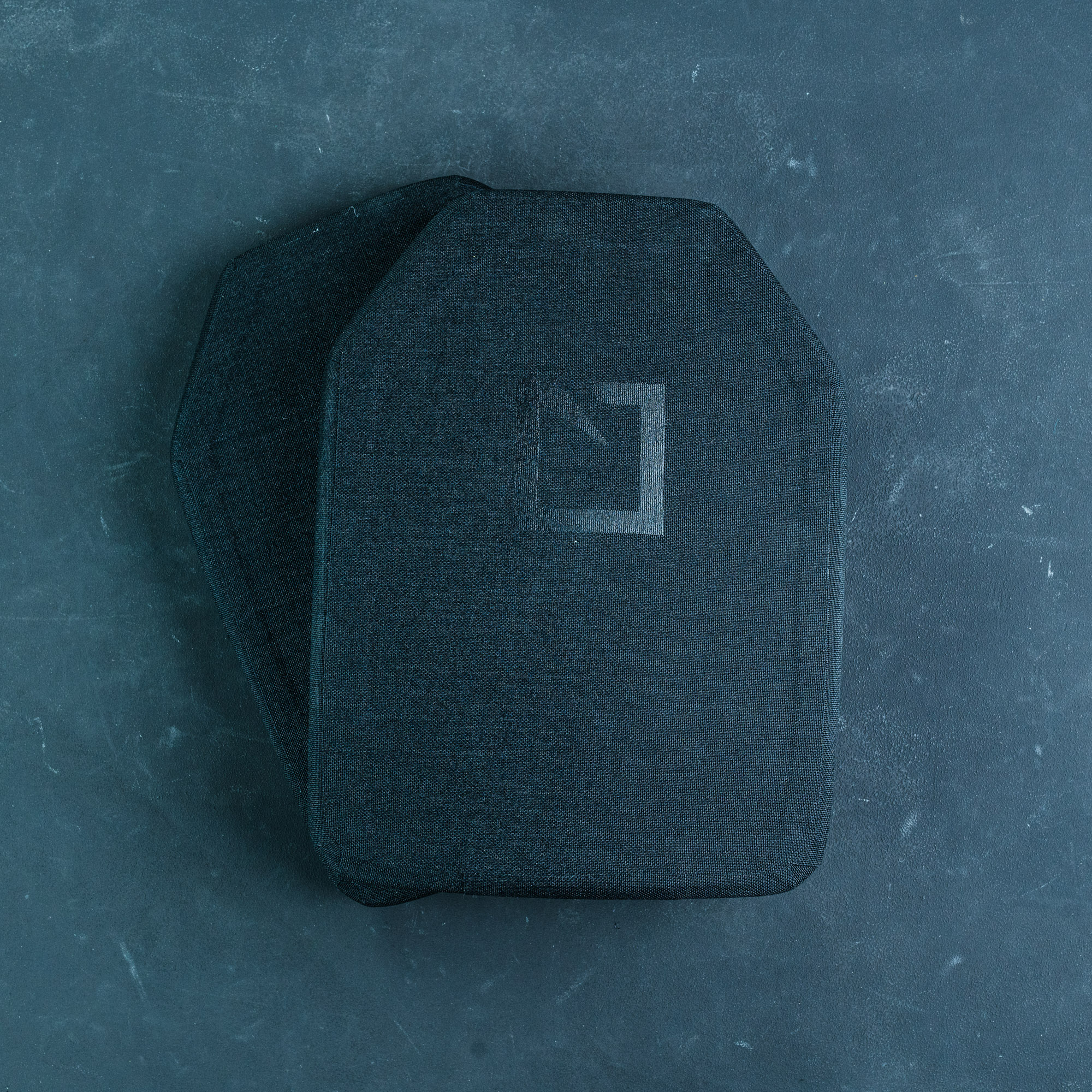 |
| $1,106.00 (M)* | $2,744.00 (M)* |
| 1.18″ Thick | 1.04″ Thick |
| Multi-Curve | Multi-Curve |
| SAPI Cut | SAPI Cut |
| 6.6 lb/plate (M) | 5.1 lb/plate (M) |
| View Threat Matrix | View Threat Matrix |
The 4601 is a Level IV plate designed to protect against high-caliber rifle rounds and armor-piercing threats in a more affordable, but heavier package.
The 4800 is a Level IV plate designed to offer protection against armor-piercing threats while remaining light compared to the 4601.
Threat Levels and NIJ Standards
The National Institute of Justice (NIJ) is the US DOJ agency in charge of testing and evaluating ballistic armor. They also set the standards that NIJ-certified armor must meet or exceed.
The current standard is (NIJ Standard 0101.06), but a new revision (NIJ Standard 0101.07) was proposed in 2018 to simplify naming and add threat levels that weren’t covered in NIJ 0101.06. For our purposes, we will mainly refer to NIJ Standard 0101.06.
| NIJ Standard 0101.06 | |||
| Level IIIA | Stops Pistol Rounds up to .44 Magnum | ||
| Level III | Stops Rifle Rounds up to .308 (M80 Ball), Excluding M855 Green Tip | ||
| Level IV | Stops Rifle Rounds up to .30-06 M2 Armor Piercing | ||
| Additions In Proposed NIJ Standard 0101.07 | |||
| NIJ RF2 (III+) | Stops rifle rounds up to .308 (M80 Ball), Including M855 Green Tip | ||
Special Threat Plates
Some armor plates are referred to as “special threat.” These plates are not covered under the current NIJ Standard 0101.06 and, therefore, aren’t NIJ Certified.
Our most popular special threat plate was the HESCO L210, which has since been discontinued in favor of the newer L211, M210, and T212 HESCO special threat variants.
These special threat plates drop the M80 ball protection of level III, but gain M855 and M855A1 protection. This can be useful for those who expect to see more intermediate threats like 5.56 and may not need the .308 protection.
Level III+ Plates
Level III+ is a designation used by some manufacturers to denote a plate that goes above the NIJ Level III standard. These plates usually offer protection against mild steel core threats like M43 and M855, which aren’t covered by the level III standard.
Single Curve Vs. Multi-Curve
For armor meant to be worn on your body, you will want it to have some type of curvature. Most plates will either have a single-curve or a multi-curve design.
The cheaper option is generally single-curve. This is adequate for most, but it is not as comfortable or concealable as multi-curve plates, as they don’t conform to the body’s shape as well. The comfort aspect can be mitigated with a pair of plate backers to offer more padding.
Multi-curve plates are the more expensive but more comfortable option. These plates better match the shape of most people’s bodies, allowing the plate to sit closer without creating hot spots and discomfort.
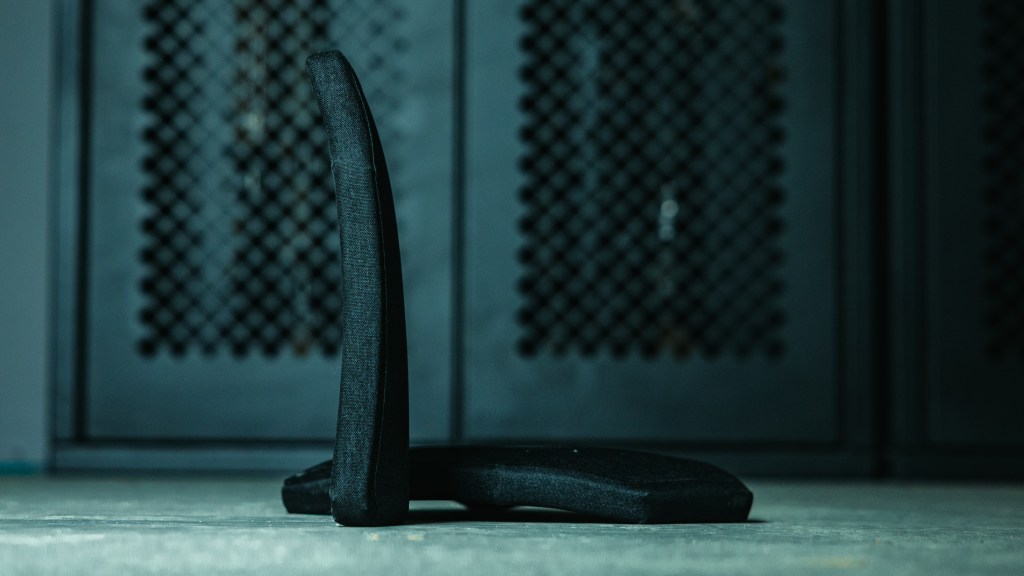
Shooter Vs. SAPI Cut
Another consideration is the profile or “cut” of your plates. SAPI cut plates are based on the profile of the SAPI/ESAPI armor used by the US military since the early-mid 2000s. Many modern armor plates use this shape and its standardized sizing. SAPI cut plates prioritize coverage over mobility, making sizing your plates more critical.
Shooter cut plates offer less coverage, allowing more arm movement while also keeping your shoulder pocket clear. Because of this, sizing is a little more lenient than SAPI cut plates. There is no official standard for “shooters cut,” so each company’s options may differ in shape and size.
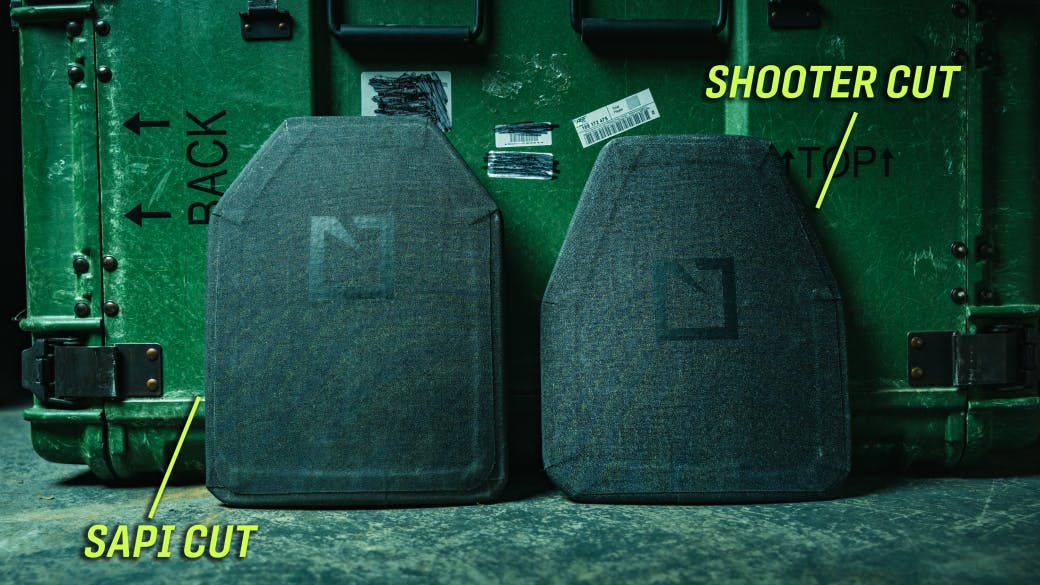
Further reading…